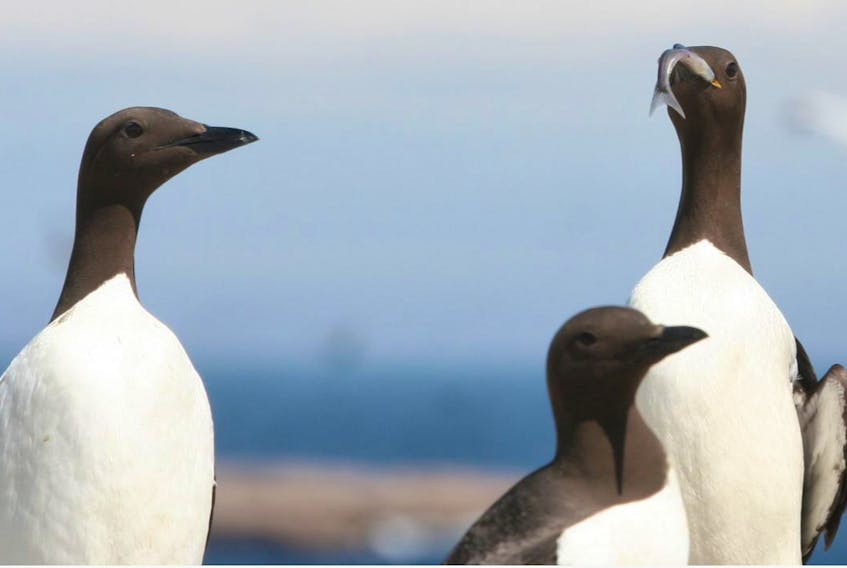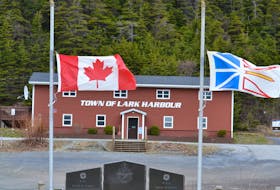ST. JOHN'S, N.L. — Seabird biologist Bill Montevecchi has spent three decades studying common murres, or turrs as they’re known locally. In studying the turrs, he must look at what they eat: caplin.
In that time, he’s noticed a worrisome trend.
Since the caplin collapse of the early 1990s, they’ve gotten progressively smaller – they’re lighter, and a little bit longer. They’re also spawning later.
“Their condition is poorer, and it’s gotten progressively poorer over the past three decades,” he said.
It’s had an effect on turr chicks; Montevecchi said the chicks have also shown a decline in their condition over the past three decades.
“It’s a signal that the caplin isn’t getting any better." -Bill Montevecchi
“It’s a signal about what’s happening in the ocean, it’s a signal about what’s happening on the planet, and anybody who’s not concerned about caplin would not be concerned about the fishery that drives the economy of our province.
“And anybody who would not be concerned about a seabird – which is really a large marine animal that’s an expert at getting food out of the ocean – when they’re not faring well, that’s something we really have to worry about because we’re on the same planet and we’re in the same circumstances.

“These effects of climate change – what the birds are providing, essentially, are signals of radical changes in the ocean – and those radical changes in the ocean are going to affect the fishery. But the planet’s 70 per cent water, so when the ocean climate is changing, the climate on the planet is changing, and these are just signals.”
Montevecchi’s research at Funk Island shows the condition of caplin brought back to chicks by adult turrs was in a steady decline from 1990 to 2017.
What resulted was a decline in offspring condition, including a reduction in mass and wing length. As well, adult turrs had to look farther and work harder to catch the fish.

Parental murres doubled their foraging distances from the Funk Island colony in 2016 over distances travelled in 2014 – flying, on average, an extra 28.7 kilometres to find food.
Yet turr populations at Funk Island aren’t decreasing.
Montevecchi attributes that contradiction to better turr hunt regulations, changes to fishing techniques that mean the birds aren’t drowning in gillnets, and stricter regulations resulting in fewer oiled birds.
“It’s not all sunshine and roses,” he said.
“For birds like murres, gannets and puffins, things seem pretty good, but when you look at other species, like the storm petrels, things don’t seem so good at all. But the populations for those (other) birds are going up even though food supply is not looking great, and in the long run that doesn’t mean that things will be great.”
Montevecchi will have a paper on this research published in the journal Marine Ecology Progress Series this year.
Twitter: @juanitamercer_
RELATED









